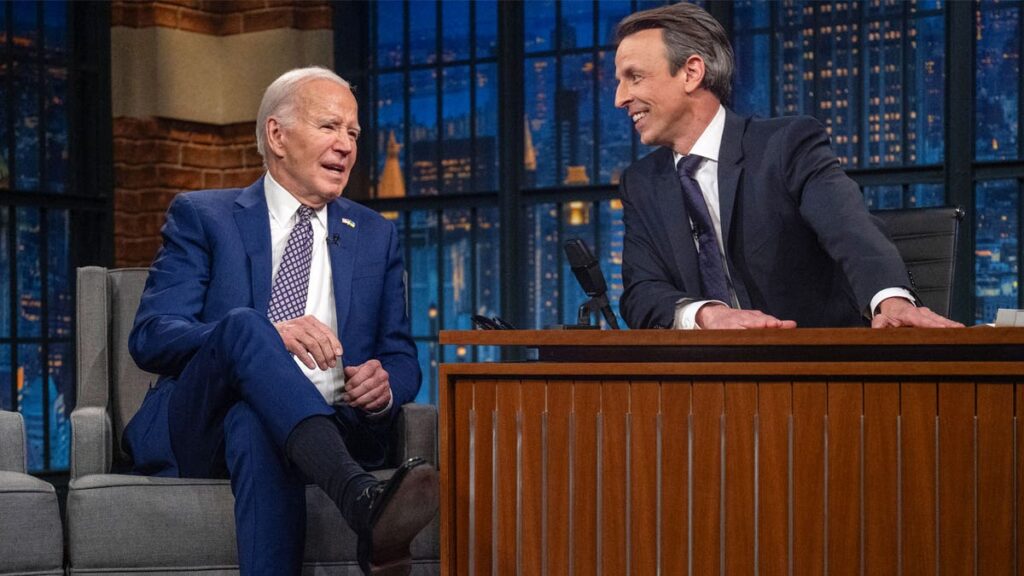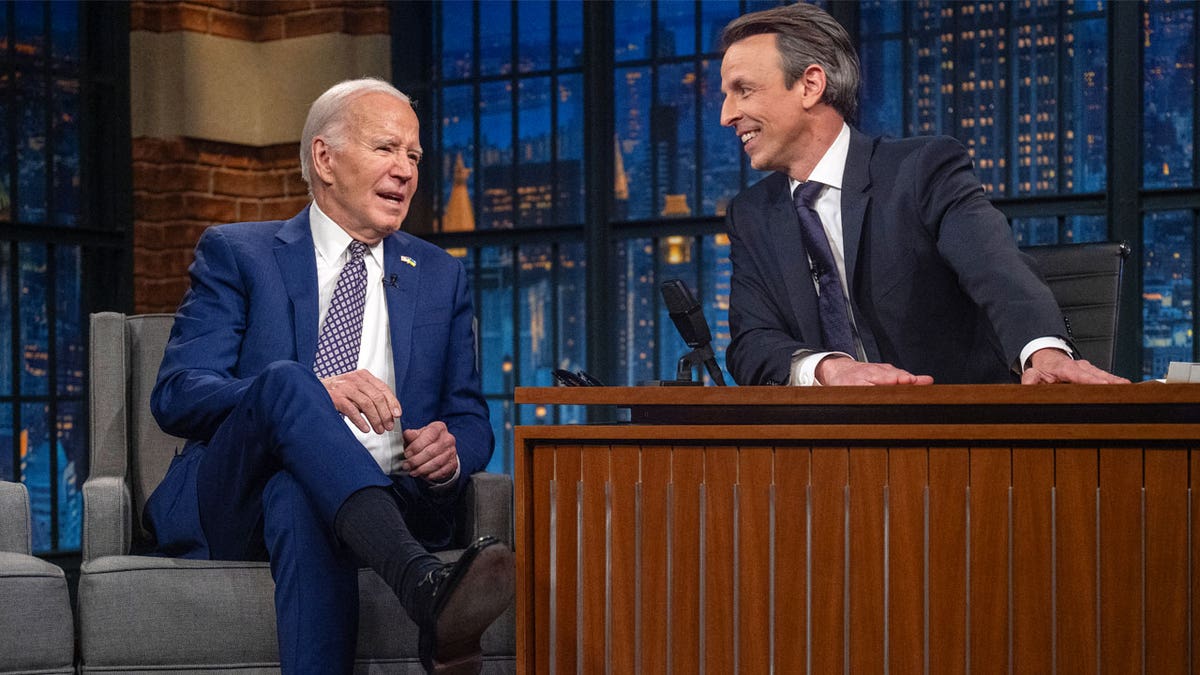
Deconstructing the Controversy: Seth Meyers, Bin Laden Jokes, and the Boundaries of Comedy
The intersection of comedy and tragedy is often fraught with peril, and few events illustrate this more acutely than the furor surrounding jokes made in the wake of Osama bin Laden’s death. The question of whether, when, and how to joke about such a sensitive topic sparked intense debate, and comedian Seth Meyers found himself squarely in the center of it. This article delves into the specifics of the “seth meyers bin laden joke” controversy, examining the context, the reactions, and the broader implications for comedy in a post-9/11 world. We aim to provide a comprehensive analysis, exploring not only the details of the jokes themselves but also the ethical considerations and societal sensitivities that fueled the controversy. This analysis will offer a balanced perspective, considering the intent of the comedian, the impact on the audience, and the enduring power of humor to both heal and provoke.
The Immediate Aftermath: Comedy in the Shadow of Tragedy
The death of Osama bin Laden on May 2, 2011, marked a significant moment for the United States. After nearly a decade-long manhunt, the mastermind behind the 9/11 attacks was finally brought to justice. The news was met with a mixture of relief, celebration, and a somber reflection on the lives lost. In the days and weeks that followed, the event permeated every aspect of American culture, including comedy.
Late-night talk shows, known for their topical humor, grappled with how to address such a sensitive subject. While some comedians opted for more cautious approaches, others, like Seth Meyers, took a bolder stance, incorporating jokes about bin Laden’s death into their monologues on Saturday Night Live and Weekend Update. It’s important to remember the very quick turnaround time of live TV; jokes are often written and rewritten up to the moment of broadcast. This compressed timeline can intensify the pressure to find the right balance between humor and respect.
The Specific Jokes: A Closer Examination of Seth Meyers’ Material
The “seth meyers bin laden joke” controversy wasn’t sparked by a single quip but rather by a series of jokes delivered in his signature sardonic style. Meyers, known for his sharp wit and political commentary, didn’t shy away from the topic. Some of his jokes focused on the absurdity of bin Laden’s hiding place, while others satirized the reactions of different groups to his death. For example, he might have joked about conspiracy theories that inevitably arose, or poked fun at the extreme celebrations that occurred in some parts of the country. The specific wording and delivery are crucial to understanding the impact of these jokes. Humor is subjective, and what one person finds funny, another may find offensive. Meyers’ brand of comedy often relies on irony and understatement, which can be easily misinterpreted in the context of a highly emotional event.
It is important to note that Meyers was not alone in making jokes about Bin Laden. Many comedians tackled the topic, but Meyers’ jokes, perhaps due to his platform on SNL, garnered significant attention and scrutiny. The jokes themselves were often layered with social commentary, but the immediate public reaction often focused solely on the perceived insensitivity of making light of a tragedy.
The Backlash: Public Reaction and Media Scrutiny
The reaction to Seth Meyers’ bin Laden jokes was swift and divided. Some viewers praised his willingness to tackle a difficult subject with humor, arguing that comedy can be a powerful tool for processing grief and trauma. They saw his jokes as a way to deflate the myth of bin Laden and reclaim a sense of power after years of fear and anxiety. Others, however, condemned the jokes as being insensitive, disrespectful, and even glorifying violence. They argued that it was too soon to joke about such a painful event, and that the jokes trivialized the suffering of the victims and their families. Online forums and social media platforms became battlegrounds for these opposing viewpoints, with heated debates erupting over the appropriateness of Meyers’ humor. News outlets and media critics weighed in on the controversy, further amplifying the discussion and shaping public opinion. Some defended Meyers’ right to free speech and artistic expression, while others criticized him for crossing the line of good taste. The intensity of the backlash highlighted the complex relationship between comedy, tragedy, and public perception.
Ethical Considerations: Navigating the Minefield of Humor
The “seth meyers bin laden joke” controversy raises fundamental ethical questions about the role of comedy in society. Where is the line between humor and disrespect? What are the responsibilities of comedians when dealing with sensitive topics? These questions have no easy answers, and the debate continues to rage on. One perspective is that comedy should be free from censorship and that comedians should be allowed to push boundaries and challenge societal norms. This view emphasizes the importance of free speech and the role of humor in holding power accountable. Another perspective is that comedians have a moral obligation to be mindful of the impact of their jokes, especially when dealing with topics that are deeply personal or traumatic for others. This view emphasizes the importance of empathy and the need to avoid causing unnecessary pain or offense. Ultimately, the ethical considerations surrounding comedy are complex and multifaceted, and each situation must be evaluated on its own merits.
Many comedians and writers have spoken about the process of “punching up” versus “punching down” with jokes. Punching up refers to targeting those in positions of power, while punching down targets marginalized groups or victims. The ethical implications differ significantly depending on which direction the humor flows. In the case of Bin Laden, the argument could be made that Meyers was punching up, targeting a figure widely considered to be evil and responsible for immense suffering. However, the proximity of the jokes to the actual event and the sensitivities of the audience complicated this dynamic.
The Enduring Power of Humor: Healing or Hurting?
Humor has the power to both heal and hurt. It can bring people together, offer moments of levity in dark times, and provide a sense of perspective. It can also be used to mock, belittle, and inflict pain. The “seth meyers bin laden joke” controversy highlights this duality. For some, the jokes offered a cathartic release, a way to laugh in the face of fear and reclaim a sense of agency. For others, the jokes were a painful reminder of the tragedy and a sign of disrespect for the victims. The impact of humor depends on a variety of factors, including the context, the delivery, the audience, and the individual’s own experiences and beliefs. What is considered funny by one person may be deeply offensive to another. This subjectivity is what makes comedy such a challenging and often controversial art form. It is not only a form of entertainment, but also a reflection of societal values and norms.
Seth Meyers’ Comedy Style: Context is Key
Understanding Seth Meyers’ comedic style is crucial to grasping the context of the controversy. Meyers is known for his dry wit, often delivering punchlines with a seemingly detached demeanor. This style can be interpreted as either sophisticated and insightful or as callous and insensitive, depending on the audience’s perspective. His humor often relies on observational comedy, pointing out absurdities in everyday life and social situations. He also frequently incorporates political satire into his routines, targeting politicians and policies from across the political spectrum. His time as head writer for Saturday Night Live honed his ability to craft jokes that are both topical and relatable. However, his comedic style is not universally appreciated, and his jokes have occasionally drawn criticism for being too edgy or politically charged. This inherent risk is part of what defines his comedic voice, and it’s a risk he knowingly takes in order to engage with complex and often uncomfortable topics.
The Role of Late-Night Comedy: Commentary and Catharsis
Late-night comedy has evolved into a significant platform for social and political commentary. Shows like Saturday Night Live, The Daily Show, and Last Week Tonight have become important sources of news and analysis for many viewers. Comedians often use their platforms to address controversial issues, challenge authority, and offer alternative perspectives. This role has become increasingly important in an era of polarized media and declining trust in traditional institutions. Late-night comedy can also provide a sense of catharsis, allowing viewers to laugh at the absurdities of the world and find common ground in shared experiences. However, this role also comes with responsibilities. Comedians must be mindful of the potential impact of their jokes and avoid perpetuating harmful stereotypes or misinformation. The “seth meyers bin laden joke” controversy underscores the delicate balance that comedians must strike between entertainment, commentary, and social responsibility.
Lessons Learned: The Evolving Landscape of Comedy
The “seth meyers bin laden joke” controversy offers valuable lessons about the evolving landscape of comedy. In an increasingly sensitive and interconnected world, comedians must be more aware than ever of the potential impact of their jokes. Social media has amplified the voices of marginalized groups and created new avenues for criticism and accountability. What was once considered acceptable humor may now be seen as offensive or insensitive. This shift requires comedians to be more thoughtful and nuanced in their approach, to consider the perspectives of diverse audiences, and to be willing to engage in dialogue about the impact of their work. The controversy also highlights the importance of context and intent. Jokes that are perceived as insensitive in one context may be seen as harmless or even humorous in another. Understanding the audience and the specific circumstances surrounding a joke is crucial to avoiding offense. Ultimately, the “seth meyers bin laden joke” controversy serves as a reminder that comedy is a powerful tool that must be wielded with care and responsibility.
Looking Back: Reflecting on Humor’s Place in History
The debate surrounding Seth Meyers’ bin Laden jokes continues to resonate, serving as a potent example of the challenges and responsibilities inherent in comedic expression. It highlights the complex interplay between societal sensitivities, personal grief, and the power of humor to both unite and divide. Comedy, particularly in the realm of late-night television, occupies a unique space in our cultural landscape, acting as both a mirror reflecting our values and a catalyst prompting us to question them. As we move forward, understanding the nuances of this controversy can help us navigate the ever-evolving boundaries of humor and its impact on our collective consciousness. The incident also reminds us that comedic intent and audience reception are not always aligned, necessitating a continuous dialogue about what constitutes appropriate and effective humor in a world grappling with complex and sensitive issues.

